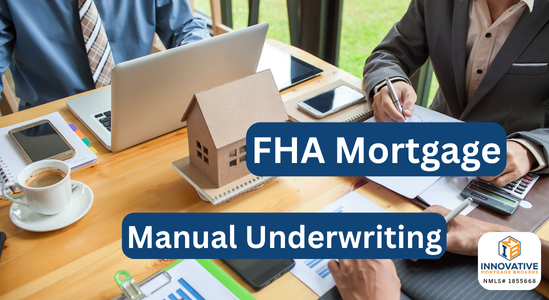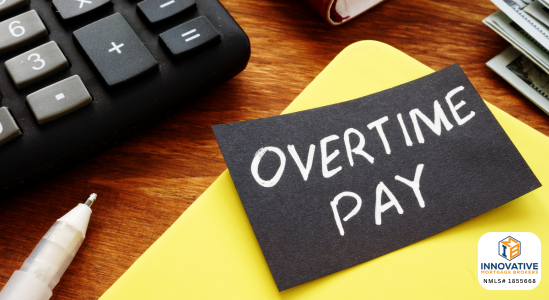Sellers must price smart; buyers gain leverage Inventory finally caught up with demand in September,…
Minimum Documentation Rules for Self-Employed Borrowers
What Lenders Are Looking For, And When One Year of Returns Is Enough
Navigating the mortgage process as a self-employed individual often requires more paperwork than for traditional W-2 employees. But don’t worry, if you don’t fit into the traditional mold, there are still plenty of options available. At Innovative Mortgage Brokers, we specialize in helping self-employed borrowers throughout Pennsylvania find mortgage solutions that align with their unique income structures. This guide breaks down the minimum documentation standards that apply to self-employed borrowers across the major mortgage agencies: Fannie Mae, Freddie Mac, FHA, VA, and USDA. These standards help determine what proof of income is needed and how underwriters evaluate your business income stability.
Why Documentation Matters for Self-Employed Borrowers
When you’re self-employed, lenders need to ensure that your income is stable and likely to continue. Since there is no employer verifying consistent paychecks, underwriters rely heavily on tax returns and related documents to assess your financial picture. Each agency sets guidelines for the minimum documentation needed to evaluate income, and understanding these requirements can help you prepare and avoid surprises.
Fannie Mae Requirements
Fannie Mae generally requires two years of personal and business tax returns. However, borrowers may qualify with just one year of tax returns if they meet the following conditions:
- All self-employed businesses have been in existence for at least five years.
- The borrower has maintained at least 25% ownership in those businesses for the full five years.
- The application receives favorable findings from the Desktop Underwriter (DU) system.
- A written analysis is included to demonstrate income stability and business sustainability.
Documentation includes IRS Form 1040 with all schedules, and business returns (Form 1120, 1120S, or 1065) when applicable. A current profit and loss (P&L) statement and balance sheet may be required if the most recent tax return is older than a calendar quarter.
Freddie Mac Requirements
Freddie Mac typically requires two years of tax returns, but it also permits one year of returns under certain conditions:
- The self-employed business must have been operating for at least five years.
- The borrower must demonstrate stable income and business longevity.
- The application must receive acceptable results through Freddie Mac’s automated underwriting system (Loan Product Advisor).
Documentation includes IRS Form 1040 with relevant schedules, and business returns if ownership and structure warrant it. A P&L statement and balance sheet may be required for year-to-date performance.
FHA Requirements
FHA requires a more conservative approach to documenting self-employment income.
Key points:
- Two years of personal and business tax returns are generally required.
- A year-to-date P&L statement and balance sheet may be needed if more than a calendar quarter has passed since the end of the last tax year.
- Additional verification, such as a business license or CPA letter, may be requested to confirm the business is active and legitimate.
VA Requirements
The Department of Veterans Affairs (VA) focuses on verifying stable and ongoing income.
Key points:
- Two years of tax returns are typically required.
- A current P&L statement may be necessary if the most recent return is older than a calendar quarter.
- Lenders will evaluate the overall financial health and sustainability of the business.
USDA Requirements
The USDA follows standards similar to FHA and VA.
Key points:
- Two years of tax returns are required.
- A year-to-date P&L statement might be required if more than a calendar quarter has passed since the last filed return.
- Lenders must determine the income is dependable and likely to continue.
What is a Profit and Loss Statement, and When Is It Needed?
A profit and loss (P&L) statement summarizes a business’s revenues, costs, and expenses over a specific period. Lenders use it to assess how the business is performing in the current year, especially if the most recent filed tax return is more than a few months old. If the P&L shows a significant decline in income, lenders may require further documentation or base the qualifying income on the lower amount.
Business Longevity and One-Year Tax Return Exceptions
Fannie Mae and Freddie Mac may allow self-employed borrowers to qualify with just one year of tax returns, but only when the borrower has:
- Been self-employed in the current business for at least five years.
- Maintained 25% or greater ownership in that business for all five years.
- Received favorable findings from the automated underwriting system.
- Submitted a written analysis supporting income and business stability.
Borrowers with fewer than five years of self-employment typically must provide two full years of returns.
The Role of Automated Underwriting Systems (AUS)
Fannie Mae’s Desktop Underwriter (DU) and Freddie Mac’s Loan Product Advisor (LPA) assess the full application to determine if a borrower qualifies for reduced documentation. These systems evaluate credit, income stability, and other risk factors to support exceptions. Due to recent updates, even with strong AUS findings, the five-year self-employment rule must still be met for one-year return eligibility.
Innovative Mortgage Brokers and Non-QM Solutions
At Innovative Mortgage Brokers, we understand that not every borrower fits into conventional agency guidelines. That’s why we offer a broad range of Non-QM (non-qualified mortgage) solutions tailored for self-employed individuals with unique financial profiles. Whether your income is seasonal, documented through bank statements, or based on 1099s, we provide alternative options designed to meet your needs when traditional documentation falls short.
Bottom Line
Self-employed borrowers are generally required to provide two years of personal and business tax returns along with current financial statements. However, Fannie Mae and Freddie Mac may permit just one year of returns if the borrower has owned and operated the business for at least five years and meets all AUS and documentation conditions. At Innovative Mortgage Brokers, we also offer flexible Non-QM programs for those who need alternatives to agency guidelines. Knowing your options in advance can help streamline the mortgage process and prepare you for success.





